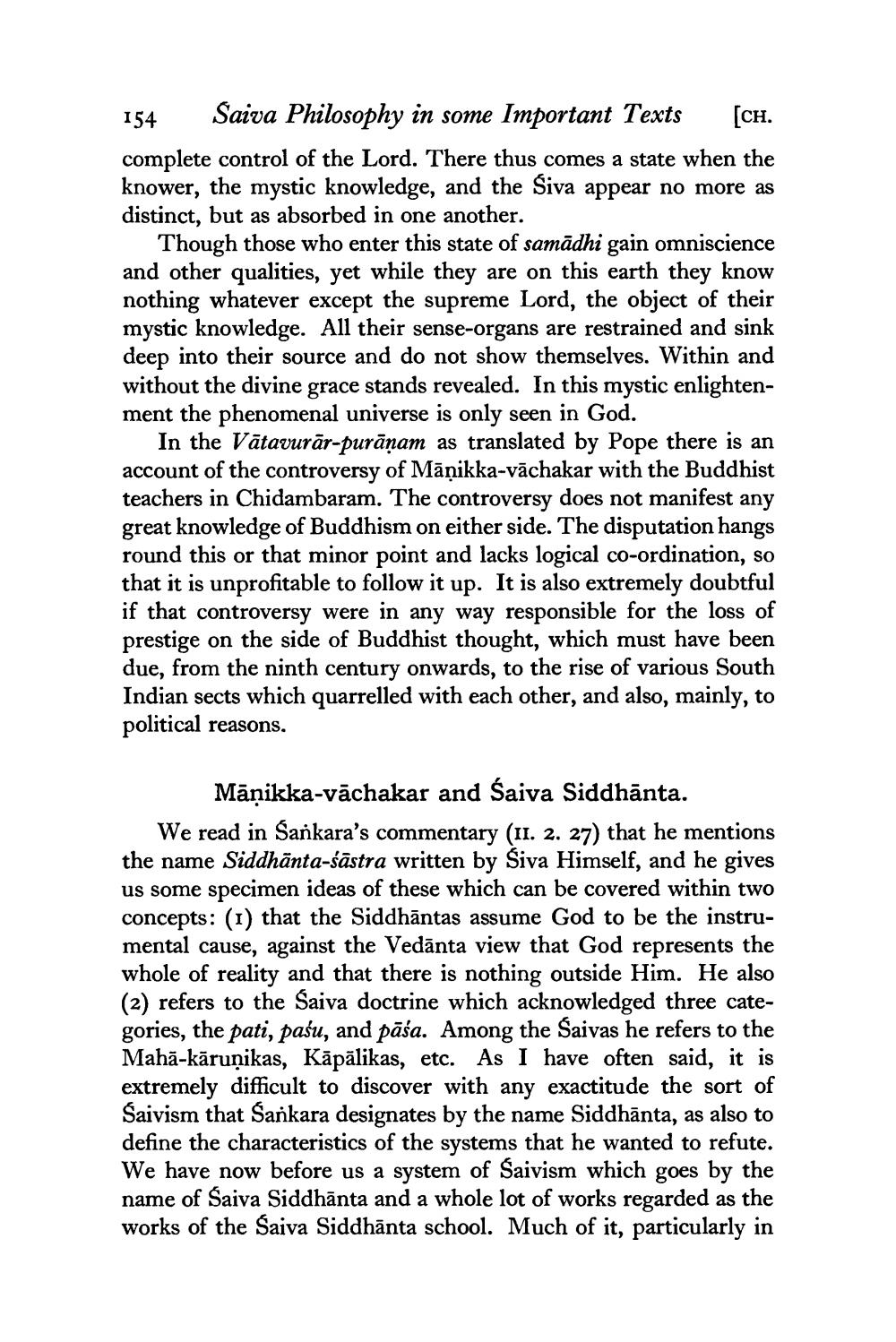________________
154 Saiva Philosophy in some Important Texts [CH. complete control of the Lord. There thus comes a state when the knower, the mystic knowledge, and the Siva appear no more as distinct, but as absorbed in one another.
Though those who enter this state of samādhi gain omniscience and other qualities, yet while they are on this earth they know nothing whatever except the supreme Lord, the object of their mystic knowledge. All their sense-organs are restrained and sink deep into their source and do not show themselves. Within and without the divine grace stands revealed. In this mystic enlightenment the phenomenal universe is only seen in God.
In the Vātavurār-purāņam as translated by Pope there is an account of the controversy of Māņikka-vāchakar with the Buddhist teachers in Chidambaram. The controversy does not manifest any great knowledge of Buddhism on either side. The disputation hangs round this or that minor point and lacks logical co-ordination, so that it is unprofitable to follow it up. It is also extremely doubtful if that controversy were in any way responsible for the loss of prestige on the side of Buddhist thought, which must have been due, from the ninth century onwards, to the rise of various South Indian sects which quarrelled with each other, and also, mainly, to political reasons.
Mānikka-vāchakar and Śaiva Siddhānta. We read in Sankara's commentary (II. 2. 27) that he mentions the name Siddhānta-śāstra written by Siva Himself, and he gives us some specimen ideas of these which can be covered within two concepts: (1) that the Siddhāntas assume God to be the instrumental cause, against the Vedānta view that God represents the whole of reality and that there is nothing outside Him. He also (2) refers to the Saiva doctrine which acknowledged three categories, the pati, pašu, and pāśa. Among the Saivas he refers to the Mahā-kāruņikas, Kāpālikas, etc. As I have often said, it is extremely difficult to discover with any exactitude the sort of Saivism that Sankara designates by the name Siddhānta, as also to define the characteristics of the systems that he wanted to refute. We have now before us a system of Saivism which goes by the name of Saiva Siddhānta and a whole lot of works regarded as the works of the Saiva Siddhānta school. Much of it, particularly in




